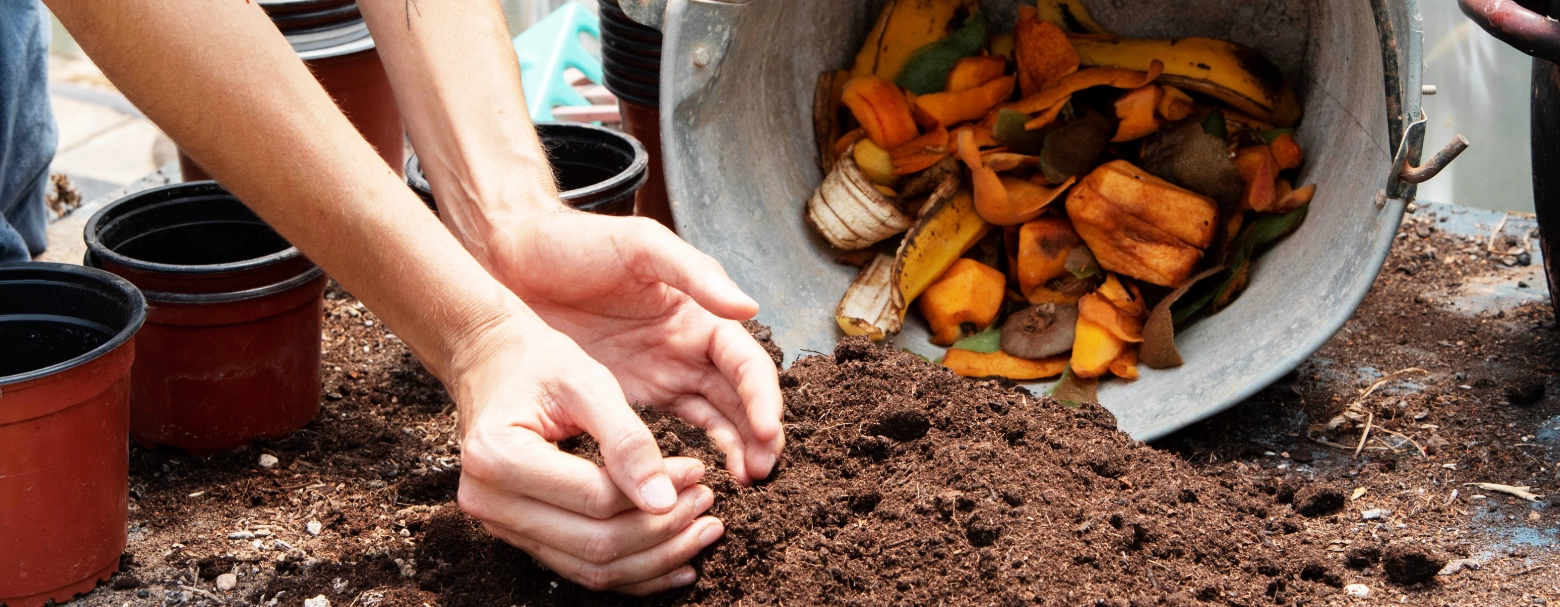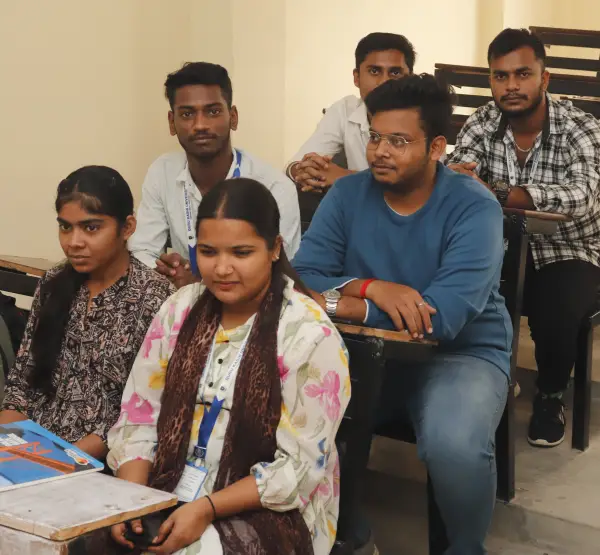
Since most of students are from agricultural background, they understand the constraints and concerns that are making farming unprofitable and unsustainable. The focus is on the contemporary concerns of agriculture such as natural resource management, eco-friendly practices, and options for the crop residue management, organic farming, post-harvest handling offarm produce mechanisation of the agriculture, storage of the food grains.

The teaching-learning process followed in various educational institutions is essentially oriented towards "What to think" that emphasizes on learning.
The major limitation of this approach is that students are unable to imbibe the skills to analyse, evaluate and create for finding solution to a problem in hand. It also does not help in applying their bookish academic knowledge gained in the classroom in improving agriculture. Therefore, GKU has emphasised on "How to think" approach, wherein students are assigned projects that helps in self directed learning, analytical thinking and in the aptitude to integrate their analytical, evaluative and creative abilities.
The students are trained to establish their crop clinics to help farmers in scientific practices and activities right from planning to marketing. The Veterinary Hospital has been started to import them practical training in different aspects of animal husbandry, poultry, fisheries, etc.
Focus is given on making students skilled so that, besides contributing in agriculture, they can be job creators through self-employment. Students have learnt about rearing silk worms on mulberry leaves, beekeeping,mushroom growing, Vermiculture production and protected cultivation of vegetables.
The students are regularly attending to farmers in surrounding villages and learn from their feedback.
The students are assigned need-based projects in each semester. These projects as per the mission of the University aim to channelize the energy of youth toward community development and social welfare.
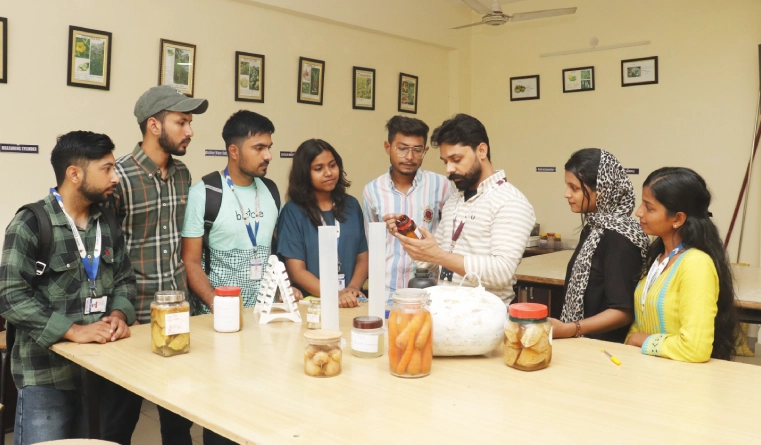
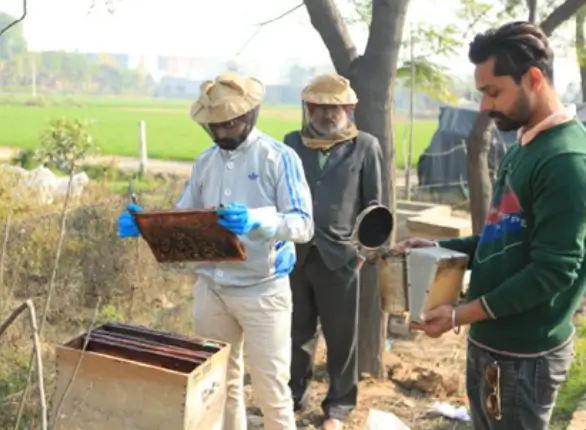
Students are made to learn about the intricacies of bee keeping. Bee keeping is a remunerative venture. GKU has an apiary of 25 boxes besides diverse flora on its campus. The boxes are allotted to students who look after them in teams and run their bee keeping venture. After the beehives are full of honey, the student teams, under the supervision of GKU faculty, harvest the honey and other products.
Sericulture aims at rearing silkworms for producing raw silk. This mainly includes growing mulberry plants to feed silkworms that spin cocoons and rearing the cocoons for the silky thread for use in weaving silk clothes.
Silkworms are obtained from Jammu or Dehradun and the locally produced silkworm cocoons are bought by traders. Students are imparted training in sericulture to start this unique venture which even a person with no landholding can start.
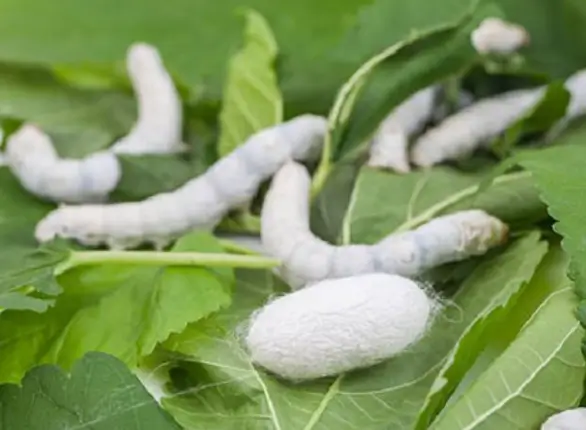
Mushrooms are a rich source of protein and nutrients. Their cultivation could help rural people in their nutritional security. They can grow mushrooms using available farm resources such as paddy straw or other compost making inputs. The University has a mushroom unit where students are taught about compost making, spawning, management of the compost site, mushroom picking and marketing, etc.
The students are assigned task for mushroom growing in each semester. This, as per the mission of GKU, aims to positively channelize the energy of youth toward community development and social welfare. Students trained in mushroom cultivation can guide the farmers as well in the 5 adopted villages. For the hands-on-experience in mushroom growing the students are even sent on educational tours to the reputed mushroom training centre(s) in H.P. (Kandaghat, Chail) or at nearby mushroom centres(KVK, Bathinda, PAU Mushroom Centre, Ludhiana) from time to time. They obtain bottled spawn from these centres.

The research at GKU is focused on prevailing agrarian issues such as diversification of cropping system, use of fly ash from the nearby thermal plants, bio-intensive integrated management of pests and pathogens of crops, viable options for crop residue management, etc.
The major evidences of GKU research in agriculture are:
If we are to make sustained success in any of these three concerns - feeding a growing population, ensuring a livelihood for farmers, and conserving the environment - we must address them all together. However, progress on this "triple challenge" is difficult since actions taken in one domain may have unexpected implications in another.

Waste management and resource conservation are extremely important for sustainability. Hence, these practices need to be inculcated and adopted at every possible level. Therefore, the University works on the principle of reduce, reuse, recycle and recover for waste management. Many activities including admissions, registration, fee payment, academic calendar, examination forms, admit cards, academic documents and forms have been shifted to online, thereby saving paper. The efforts are also on to make more and more functions paperless. Similarly, systems and practices are in place for segregation, recycling and reusing the waste.
The solid waste is categorized into Non-biodegradable and Biodegradable wastes.While the non-biodegradable waste is further divided into recyclable and non-recyclable. Accordingly, color coded dumpsters to segregate and collect the solid waste in the corridors, offices, hostel premises, pantries and open spaces.
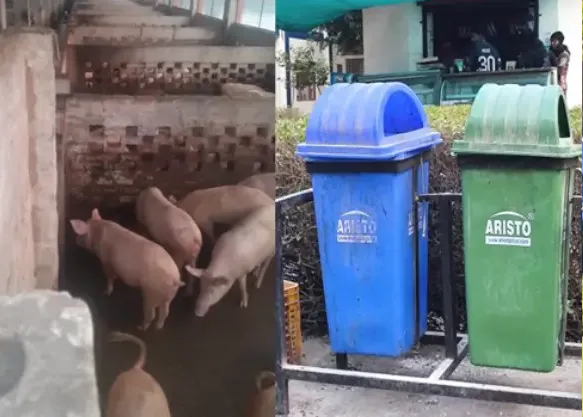
The waste water generated in the University is treated through an STP of 400 KL/day capacity. Waste water generated from sewerage, kitchen and laundry is treated in the STP. The treated water is used for irrigating agro-forestry plantation and horticultural orchards. Generators are used at GKU during power cuts/ failure. To reduce the use of generators and thus check the environment pollution, rooftop solar power plants have been installed in various blocks.

Management of different types of wastes involves gathering, assortment, transport, re-processing, recycling, and disposal. The recycling is based on reduction (old laboratory equipment, broken furniture, fixture, newspapers, waste paper, etc., are disposed through auction), reuse (left-over kitchen waste from hostel messes, etc. collected by the dairy/piggery owners to use as cattle feed), recycling (composting from plant based waste) and recovery of treated sewerage water for irrigating tolerant forestry plants (eucalyptus) and fruits orchards maintained by College of Agriculture
Bio-medical Waste Management: The bio-medical waste is very negligible. However, the waste available in the dispensary are segregated as per color codes as prescribed for bio-medical waste for which color bins have been placed. GKU campus has a sanitary napkin incinerator was installed at the girls hostel premises for hygienic disposal of sanitary wastes.
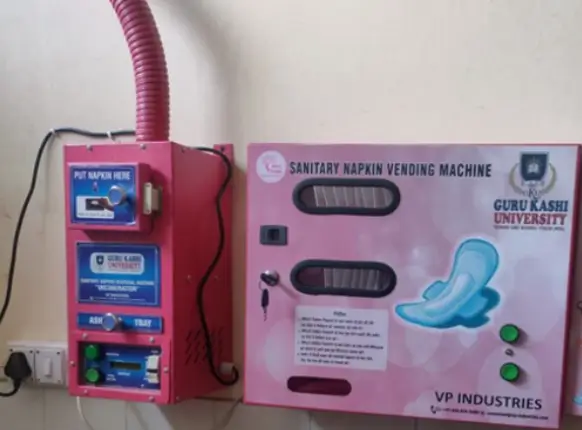
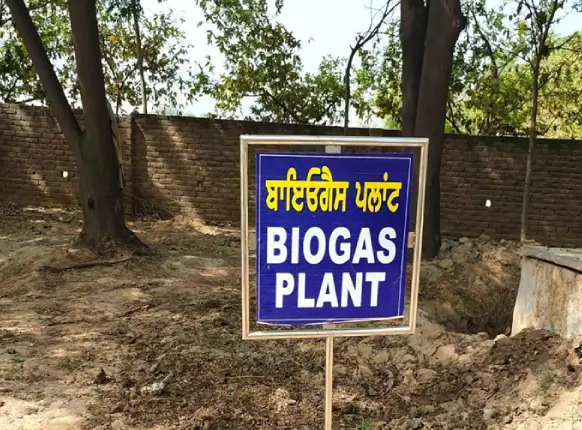
Biogas Plant having capacity 15m1/day installed at the campus of Guru Kashi University, The Biogas produced from this Biogas Plant has been unitized in the kitchen ofMess.
Guru Kashi University is having Compost pits for solid waste Management. One is located at back the Side of Shivalik Hostel while another one is opposite to Neelgiri Hostel.
